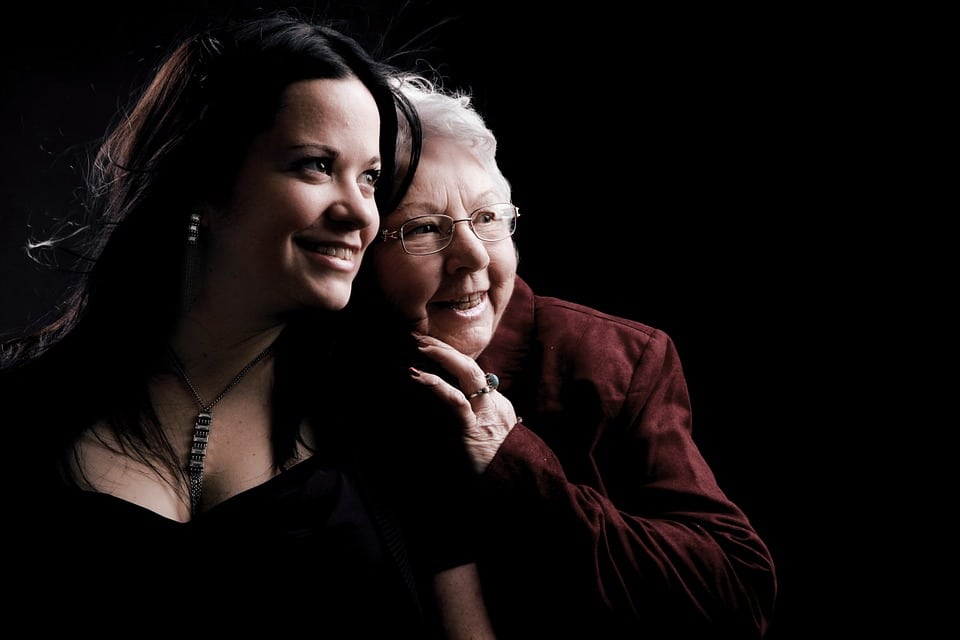
In my last blog post, I wrote about why kids, usually adult children, need to talk to their parents about the parents’ estate plan. In this post, I want to talk about how parents need to talk to their children about their estate plan. Mostly, both sides need to have the discussion about an estate plan and it needs to start somewhere. I advised the children to talk to their parents, or the discussion may never happen because parents will not bring up an estate plan. So, I challenge you parents: Bring the estate plan up with your children before they ask you!
I know most of your kids don’t really want to discuss an estate plan, because having that discussion means acknowledging that you will pass away at some point. No child who wants to really consider a world without their parents.
Fortunately, you are still the parent, so you can tell your children that they may not want to hear it, but you need to have an important discussion about your estate plan. You can be serious, or you can be lighthearted about the conversation. You can get your children’s input, or you can just let them know what you are doing in an estate plan. I’ll give you some suggestions below. No matter how you bring it up, the most important thing to do is start the conversation!
Starting the Conversation – Jump Straight In
You don’t need to sneak up on having a conversation with your children concerning your estate plan. You can jump right in by telling them that they may not want to hear it, but you need to talk to them about your estate plan. You can let them know that you are not going to dwell on the subject, but you need to have the discussion.
I often have clients whose adult children will start crying at the mention of a parent passing away, or at the thought of a parent being on life support. I will ask the adult children bear with me through this discussion, we will get through this together.
The same thing can work for you in discussing your estate plan with your children. If you can get them to listen to your for a relatively short period of time, you can let them know what should happen at the end of your life – who is in charge, who needs to do what, and what happens to your stuff. You can even play the parent card, laying down the law by saying, “I know you don’t want to discuss this, but I am your mother / father, so we will have this conversation.” Or, you can use a softer approach…I leave that up to you!
Address Your Estate Plan as Easily as You Can
 This conversation doesn’t always need to be serious and weighty. You can have some fun in the conversation. I had a client who told their children, “Look, you need to listen to this. I am going to get old someday, and you will need to put me in a home…don’t you want that to be a nice place to visit?” She followed up that line with a wry smile and, “If you don’t come visit me, you know I will come back and haunt you!” Everyone was laughing, and we all had a good discussion before everyone remembered to be serious.
This conversation doesn’t always need to be serious and weighty. You can have some fun in the conversation. I had a client who told their children, “Look, you need to listen to this. I am going to get old someday, and you will need to put me in a home…don’t you want that to be a nice place to visit?” She followed up that line with a wry smile and, “If you don’t come visit me, you know I will come back and haunt you!” Everyone was laughing, and we all had a good discussion before everyone remembered to be serious.
Humor doesn’t work for everyone, but a discussion about your estate plan doesn’t need to be so serious that you cannot complete the discussion. You don’t want to upset your children. So, focus on informing your children. Most will appreciate what you have told them, and you can clue them in to what to expect. You can simply relate what you have decided to do in an estate plan, or you can seek your childrens’ input. While your desires ultimately are the most important, you certainly want to know what your children are expecting before making any final decisions.
Discussing Your Estate Plan Sets Things Up for Success
 If your children don’t know what to expect, they are more likely to be disappointed. You want to let the children know who will be in charge, making decisions if you cannot, and distributing property when you pass away. You also might share with the children why you set things up the way you did. You might let them know that the oldest is in charge because they are the oldest, or because you want to make the oldest get along with all of the other siblings. What reasoning you share with them is completely up to you.
If your children don’t know what to expect, they are more likely to be disappointed. You want to let the children know who will be in charge, making decisions if you cannot, and distributing property when you pass away. You also might share with the children why you set things up the way you did. You might let them know that the oldest is in charge because they are the oldest, or because you want to make the oldest get along with all of the other siblings. What reasoning you share with them is completely up to you.
You could also tell the children that your estate planning attorney encouraged you to talk to them, so it can all me the estate planning attorney’s fault. If you tell your children that your estate planning attorney wanted you to talk to them, you are just following sound legal advice, and we estate planning attorneys can be the fall guys. I promise you, we can take the heat!
You just want to have the conversation to let your children know that you want to have happen, so they are not surprised and confused. Your children will already be sad you are gone, so talking to them now eliminates the unknown of what to do with your stuff. The children will be able to grieve you properly, and let the money stuff work itself out in time.


 720-730-7274
720-730-7274










Really found your blog interesting and informative. The statement about “blaming ” our estate planner is genius. ?
That said; your guidance, good humor, and professionalism while preparing our trust and other legal documents left us knowing we’re prepared.
Thank you Michael!